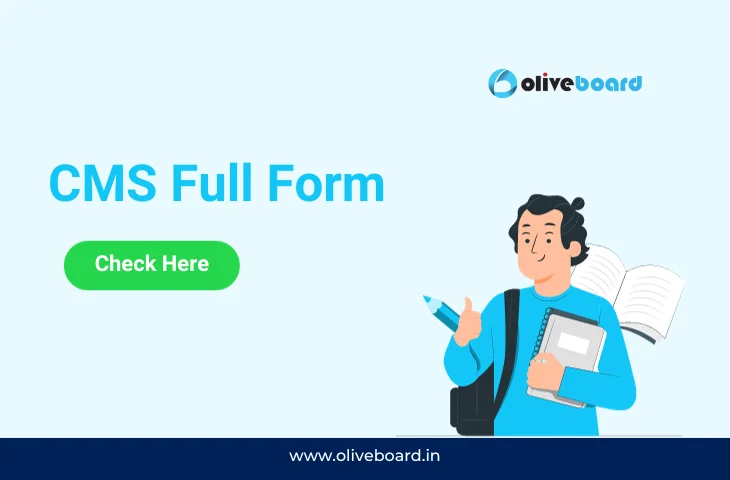CMS Full Form
In the fast-paced world of digital content creation and website management, acronyms and technical jargon can sometimes be overwhelming. CMS, which stands for Content Management System, is one such term that you’ve likely come across in your online endeavors. In this article, we’ll delve into what CMS stands for, how it works, and why it’s an indispensable tool for website owners, bloggers, businesses, and organizations.
What is CMS?
CMS, or Content Management System, is a software application or a web-based platform designed to help users create, manage, and organize digital content without the need for extensive technical knowledge or coding skills. CMS platforms offer an intuitive interface that allows users to create, edit, publish, and update web content such as text, images, videos, and more. It simplifies the process of website management by separating the content from the design and structure, making it more accessible for non-technical users.
Key Components of a CMS
- Content Creation: Users can easily create and format text, upload images, embed videos, and add other types of media to their websites or blogs.
- Content Editing: CMSs provide WYSIWYG (What You See Is What You Get) editors that make content editing as simple as working in a word processing software.
- Media Management: CMSs allow users to upload and manage media files, including images and videos, in a structured manner.
- User Management: Multiple users can collaborate on the same website, each with their own set of permissions and roles.
- Template and Design Management: CMSs offer templates and themes for website design and allow for easy customization to create a unique look and feel.
- Search Functionality: Built-in search capabilities enable visitors to find content easily.
- SEO Tools: Many CMSs come with SEO plugins or built-in features to optimize content for search engines.
- Security: CMSs often include security features to protect against vulnerabilities and attacks.
Popular Content Management Systems
- WordPress: One of the most widely used CMS platforms, known for its versatility and ease of use, WordPress powers a significant portion of the internet.
- Joomla: A powerful, open-source CMS that’s suitable for a wide range of websites, from personal blogs to complex e-commerce sites.
- Drupal: A highly customizable CMS favored by developers and large organizations for its flexibility and scalability.
- Magento: An e-commerce-focused CMS that caters to businesses looking to build and manage online stores.
- Wix: A user-friendly, cloud-based website builder with built-in CMS features, perfect for beginners and small businesses.
Why Use a CMS?
- User-Friendly: CMS platforms are designed with non-technical users in mind, making it accessible to a wide audience.
- Efficiency: CMSs streamline content creation and management, saving time and effort.
- Consistency: Templates and themes ensure a consistent look and feel across the website.
- Collaboration: Multiple users can work on the same website, each with their assigned roles and permissions.
- Scalability: CMSs can grow with your needs, whether you’re managing a personal blog or a large e-commerce site.
- SEO-Friendly: Many CMSs offer SEO tools to help improve your website’s search engine visibility.
Conclusion – CMS Full Form
Content Management Systems (CMS) have revolutionized the way we create, manage, and publish digital content on the internet. With their user-friendly interfaces, extensive features, and customization options, CMS platforms have become an integral part of the online ecosystem. Whether you’re a blogger, a small business owner, or a large organization, a CMS can simplify website management and help you reach your online goals. Understanding what CMS stands for and how it works is the first step in harnessing the power of this valuable tool.
FAQs – CMS Full Form
Ans: CMS stands for “Content Management System.”
Ans: In Hindi, the full form of CMS remains the same: “सामग्री प्रबंधन प्रणाली” or “कंटेंट प्रबंधन प्रणाली.” Both of these translations refer to a Content Management System.
- Questions asked in SSC CHSL Tier 2 Exam 2025, Download PDF
- RBI Grade B Previous Year Papers 2018-24, Download Free PDF
- OICL AO Prelims Result 2026 Out, Download Result PDF
- PNB Apprentice Eligibility 2026, State Wise Vacancy
- RRB NTPC UG Application Status 2026 Out, Check Official Link

Priti Palit, is an accomplished edtech writer with 4+ years of experience in Regulatory Exams and other multiple government exams. With a passion for education and a keen eye for detail, she has contributed significantly to the field of online learning. Priti’s expertise and dedication continue to empower aspiring individuals in their pursuit of success in government examinations.
